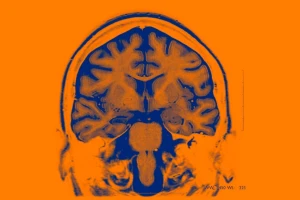Excerpt:
‘Wayne Goodman, a psychiatrist at Baylor College of Medicine in Houston, Texas, hopes that closed-loop stimulation will prove a better long-term treatment for mood disorders than previous attempts at deep-brain stimulation — partly because the latest generation of algorithms is more personalized and based on physiological signals, rather than a doctor’s judgement. “You have to do a lot of tuning to get it right,” says Goodman, who is about to launch a small trial of closed-loop stimulation to treat obsessive–compulsive disorder.
One challenge with stimulating areas of the brain associated with mood, he says, is the possibility of overcorrecting emotions to create extreme happiness that overwhelms all other feelings. Other ethical considerations arise from the fact that the algorithms used in closed-loop stimulation can tell the researchers about the person’s mood, beyond what may be visible from behaviour or facial expressions. While researchers won’t be able to read people’s minds, “we will have access to activity that encodes their feelings,” says Alik Widge, a neuroengineer and psychiatrist at Harvard University in Cambridge, Massachusetts, and engineering director of the MGH team. Like Chang and Goodman’s teams, Widge’s group is working with neuroethicists to address the complex ethical concerns surrounding its work.
Still, Chang says, the stimulation technologies that his team and others are developing are only a first step towards better treatment for mood disorders. He predicts that data from trials of brain implants could help researchers to develop non-invasive therapies for mental illnesses that stimulate the brain through the skull. “The exciting thing about these technologies,” he says, “is that for the first time we’re going to have a window on the brain where we know what’s happening in the brain when someone relapses.”’
Relevance:
This article provides a clear example of using AI and advanced technology to create personalized mental health treatments. It discusses how a system can detect and respond to brain signals, which relates to my idea of using implants to modify personality. It also explains the use of deep-brain stimulation in treating conditions like Parkinson’s disease, giving insights into its effectiveness and lessons learned. This helps me understand what’s essential in a medical-related project and what to expect in my future project. The article also illustrates the challenges and possibilities of using AI, such as relying on physiological signals for more personalized treatment, and emphasizes the need to consider ethical issues like privacy and personal autonomy.The article suggests that data from current brain implant trials could help develop these kinds of less invasive methods, which could offer safer and more accessible options for treating mental health conditions in the future. Although my focus is on the implant device but this still help me broaden the scope of my research.
Reference:
Reardon, S. (2017, November 30). AI-controlled brain implants for mood disorders tested in people. Nature News. https://www.nature.com/articles/nature.2017.23031




